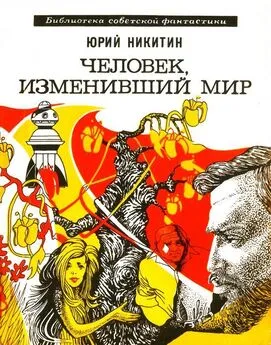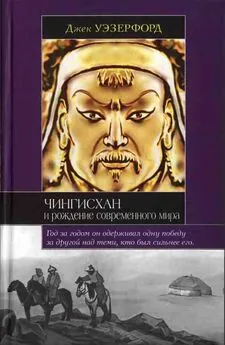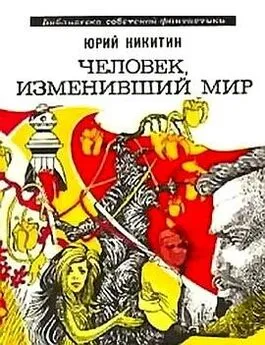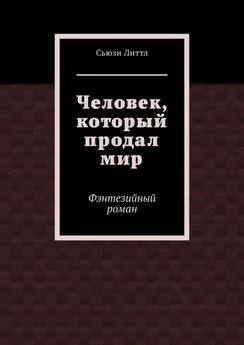Фрэнк Маклинн - Чингисхан. Человек, завоевавший мир
- Название:Чингисхан. Человек, завоевавший мир
- Автор:
- Жанр:
- Издательство:АСТ
- Год:2019
- Город:Москва
- ISBN:978-5-17-095186-4
- Рейтинг:
- Избранное:Добавить в избранное
-
Отзывы:
-
Ваша оценка:
Фрэнк Маклинн - Чингисхан. Человек, завоевавший мир краткое содержание
Чингисхан. Человек, завоевавший мир - читать онлайн бесплатно ознакомительный отрывок
Интервал:
Закладка:
2427
Mitchell & Forbes, Chronicle of Novgorod pp. 86–87.
2428
Fennell, Crisis p. 105; Tumler, Deutsche Orden pp. 266–267; Nicolle, Peipus.
2429
The quote is from Fennell, Crists p. 106.
2430
Donald Ostrowski, 'Alexander Nevskii's "Battle on the Ice": The Creation of a Legend,' Russian History 33 (2006) pp. 289–312; Dittmar Dahlmann, 'Der russische Sieg fiber die "teutonischen Ritter" auf dem Peipussee 1242,' in Krumeich & Brandt, Schlachtenmythen pp. 63–75; Fennell & Stokes, Early Russian Literature pp. 107–121. The extent to which Lake Peipus has been presented as a battle to rank with Gaugamela, Zama, Alesia or Waterloo is well-nigh incredible. In Eisensteiris 1938 film, which portrays Nevsky as a peerless hero, no historical context is given. The Mongols appear, meaninglessly, in the first ten minutes, as if they were spear-carriers or extras in the drama. A great film, certainly, with wonderful music by Prokofiev, but essentially historical nonsense. Suppressio veri and suggestio falsi are used to create the impression that Nevsky saved 'Russia' (which of course did not exist at that time) from threats both east and west — Stalin's way of saying that the USSR could withstand attacks from both Hitler's Germany and Japan.
2431
Buell, Dictionary p. 266; Jurgen Sarnowsky, 'The Teutonic Order Confronts the Mongols and Turks,' in Barber, Military Orders pp. 253–262.
2432
Isoaho, Aleksandr Nevskiy pp. 88–98.
2433
Dawson, Mongol Mission pp. 62, 65, 70; Fennell, Crisis pp. 98–99, 107–108, 110–120.
2434
For Sartaq see JR II p. 1291; JB I p. 223; Jackson & Morgan, Rubruck pp. 117–119; Allsen, Mongol Imperialism pp. 136–138; Allsen, 'Mongol Census-Taking in Rus', 1245–1275,' Harvard Ukrainian Studies 5 (1981) pp. 32–53 (at p. 40); Dawson, Mongol Mission pp. 45, 65, 117–118; Jackson & Morgan, Rubruck pp. 114–122; Pelliot, Horde d'Or pp. 134–144; Spuler, Goldene Horde pp. 33–34. There was a brief interregnum in 1257 between the khanates of Sartaq and Berke when Sartaq's brother Ulaghchi reigned (Pelliot, Notes sur Marco Polo I pp. 92–95; Pelliot, Horde d'Or pp. 47–51). For Berke's conversion to Islam see Jean Richard, 'La conversion de Berke et les debuts de l'islamisation de la Horde d'Or,' Revue des Etudes Islamiques 35 (1967) pp. 173–184; Istvan Vasary, 'History and Legend in Berke Khan's conversion to Islam,' in Sinor, Aspects III pp. 230–252.
2435
JR II p. 1149; JB I pp. 239–246.
2436
Коден. — Прим. пер .
2437
JB I pp. 21, 171, 176; Hambis, Le chapitre CVII; Boyle, Successors p. 181. For Koden and Shiremun see Buell, Dictionary pp. 184, 243.
2438
Bretschneider, Mediaeval Researches I p. 332; Boyle, Successors pp. 179, 183; David Ayalon, 'The Great Yasa,' Studia Islamica 34 (1971) pp. 151–180 (at pp. 157–159, 164–165; Spuler, Mongolen in Iran p. 39.
2439
JB I pp. 255–257; Grousset, Empire p. 271; Hodong Kim, 'A Reappraisal of Guyiik Khan,' in Amitai & Biran, Mongols, Turks and Others pp. 309–338.
2440
Allsen, Mongol Imperialism pp. 21–22, 54–63.
2441
JR II p. 1151; Boyle, Successors pp. 99, 180–186; Jackson, 'The Dissolution of the Mongol Empire,' Central Asiatic Journal 22 (1978) pp. 186–244 (at pp. 200–201); Atwood, Encyclopedia p. 213.
2442
Jackson & Morgan, Rubruck pp. 46–50,163–164; Atwood, Encyclopedia p. 512.
2443
Jackson & Morgan, Rubruck p. 169; Pelliot, 'Les Mongols et la papaute,' Revue de I'Orient chretien 24 (1924) p. 203; Aiken, Mongol Imperialism pp. 30–37.
2444
Boyle, Successors pp. 21–22, 216; W Abramowski, 'Die chinesischen Annalen der Mongke,' Zentralasiatische Studien 13 (1979) pp. 7–71 (at pp. 20–21, 28); Morgan, Mongols pp. 103–104.
2445
Lane, Daily Life p. 9.
2446
Barnes & Hudson, History Atlas of Asia p. 87.
2447
Morgan, Medieval Persia pp. 64–72.
2448
Krause, Epoche der Mongolen p. 6.
2449
Khazanov, Nomads and the Outside World, pp. 238–239.
2450
D. C. Wright, 'Was Chinggis Khan Literate?' in Janhunen, Writing pp. 305–312.
2451
Unlu, Genealogy of a World Empire p. 88.
2452
Sechin Jagchid, 'The Historical Interaction between the Nomadic People in Mongolia and the Sedentary Chinese,' in Seaman & Marks, Rulers from the Steppe pp. 63–91 (at p. 81).
2453
Quoted in Weatherford, Genghis Khan p. 125.
2454
T. Zerjal et al, 'The Genetic Legacy of the Mongols,' American Journal of Human Genetics 72 (2003) pp. 717–721. Not being a geneticist, I find the detailed argument difficult to follow, but it seems to hinge on the Haplogroup C — M217 and its subgroup C — M130.
2455
Garrett Hellenthal, Simon Myers, Daniel Falush, et al, A Genetic Atlas of Human Admixture History,' Science 343 (14 February 2014) pp. 747–751.
2456
S. Abilev et al, 'The Y-chromosome C3* Star Cluster Attributed to Genghis Khan's Descendants,' Human Biology 84 (2012) pp. 79–89. See also the discussion in Hard & Jones, Genetics p. 309; Chapin, Long Lines; Cooper, Geography of Genocide; Wells, Journey of Man.
2457
Доведение до абсурда ( лат .).
2458
The 'great man' theory and its critics form one of the most hotly contested battlegrounds in historiography, with luminaries such as Carlyle, Nietzsche and Kierkegaard promoting and Engels, Tolstoy and Herbert Spencer opposing. See Leonid Grinin, 'The Role of an Individual in History: A Reconsideration,' Social Evolution and History 9 (2010) pp. 95–136; Friedrich Engels, introduction to Socialism; Hook, Hero.
2459
Montesquieu, Considerations on the Causes of the Greatness of the Romans (1734) Chapter 18.
2460
Fletcher, 'The Mongols,' loc. cit. pp. 35–36. Pace the strenuous objections in Tolstoy's War and Peace: 'The words chance and genius do not denote anything that actually exists, and therefore they cannot be defined. These two words merely indicate a certain degree of comprehension of phenomena. I do not know why a certain event occurs; I suppose that I cannot know; therefore I do not try to know, and I talk about chance. I see a force producing effects beyond the scope of ordinary human agencies; I do not understand why this occurs, and I cry genius' (War and Peace, Epilogue, part 1.2, translated by Rosemary Edmonds). The rhetoric is strong but the accompanying arguments are weak and amount to little more than Tolstoy's ex cathedra assertion that factors of inevitability must be at play.
2461
For Ibn Khaldun and his views on climate see Warren E. Gates, 'The Spread of Ibn Khaldun's Ideas on Climate and Culture,' Journal of the History of Ideas 28 (1967) pp. 415–422; Fromherz, Ibn Khaldun.
2462
On climate see Montesquieu, The Spirit of the Laws, Chapter 14. On the Mongols see ibid. pp. 268–280.
2463
Gumilev, Imaginary Kingdom pp. 21–24.
2464
Gumilev, Imaginary Kingdom pp. 21–24.
2465
Drought is emphasised in all the following studies: Lattimore, 'The Geographical Factor in Mongol History,' Geographical Journal 41 (1938) pp. 1–20, reproduced in Studies in Frontier History pp. 241–258; Ellsworth Huntington, 'Changes of Climate and History,' American Historical Review 18 (1913) pp. 213–232, and cf Martin, Ellsworth Huntington and G. F. Hudson's note in Toynbee, Study of History (1962) III annex 2 p. 453; Brown, History and Climate Change pp. 211–221.
2466
Brown, Geography of Human Conflict pp. 53–57 (esp. p. 54).
2467
Yongkang Xue, 'The Impact of Desertification in Mongolia and the Inner Mongolian Grassland on the Regional Climate,' Journal of Climate 9 (1996) pp. 2173–2189.
2468
Cold weather theorists include Gareth Jenkins, 'A Note on Climate Cycles and the Rise of Chinggis Khan,' Central Asiatic Journal 18 (1974) pp. 217–226 and William S. Atwell, 'Volcanism and Short-Term Climatic Change in East Asian and World History c. 1200–1699,' Journal of World History 12 (2001) pp. 29–98 (at pp. 42–45).
2469
Mara Hvistendahl, 'Roots of Empire,' Science 337 (28 September 2012) pp. 1596–1599. Another 'wet conditions' advocate is H. H. Lamb, Climate, History and the Modern World pp. 184–185, 317.
2470
Brown, History and Climate Change p. 217.
2471
Lattimore, 'The Geographical Factor,' in Studies in Frontier History pp. 252–253; Lattimore, 'The Historical Setting of Inner Mongolian Nationalism,' ibid. pp. 440–455.
2472
Gumilev, Imaginary Kingdom p. 259.
2473
Gumilev, Imaginary Kingdom pp. 19–20.
2474
Togan, Flexibility and Limitation p. 6.
2475
Fletcher, 'The Mongols,' loc. cit. pp. 22–34. For further contributions to the climate debate see B. Beentjes, 'Nomadwanderungen und Klimaschwangen,' Central Asiatic Journal 30 (1986) pp. 7–17; A. W B. Meyer, 'Climate and Migration,' in Bell-Fialkoff, Role of Migration pp. 287–294; V G. Dirksen et al, 'Chronology of Holocene Climate and Vegetation Changes and their Connection to Cultural Dynamics in Southern Siberia,' Radiocarbon 49 (2007) pp. 1103–1121; B. van Geel, 'Climate Change and the Expansion of the Scythian Culture after 850 ВС: A Hypothesis,' Archaeological Science 31 (2004) pp. 1735–1742; 33 (2006) pp. 143–148.
2476
Julia Pongratz et al, 'Coupled Climate-Carbon Simulations Indicate Minor Global Effects of Wars and Epidemics on Atmospheric CO 2 ," The Holocene 21 (2011) pp. 848–851.
2477
Keegan, History of Warfare (1994) p. 214. For the 'Mongols to blame' see also Salisbury, Coming War p. 31.
2478
Ostrowski, Muscovy and the Mongols pp. 3–4.
2479
Weatherford, Genghis Khan pp. xxiv, 237–238.
2480
Бэкон Роджер (1214–1294) — английский философ и естествоиспытатель, состоял во францисканском ордене. — Прим. пер .
2481
Martels, Travel Fact pp. 54–71. It is interesting that Weatherford, Genghis p. 236 has Francis Bacon in the late sixteenth century summing up the three breakthrough technologies that came to the West from the Mongols as printing, gunpowder and the compass, for Janet Abu-Lughod (The World System pp. 23–24) makes an explicit comparison between the two Bacons, having religion (Roger Bacon) contrast with politics (Francis Bacon) and the allegiance of the former to the Pope contrasted with that of the latter to the monarch.
Читать дальшеИнтервал:
Закладка:
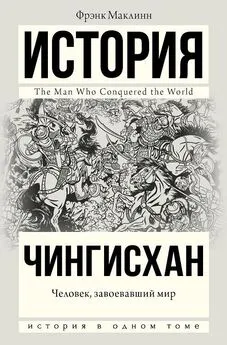

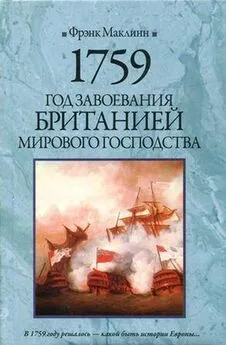
![Ксения Чепикова - Человек, научивший мир читать [История Великой информационной революции]](/books/1059757/kseniya-chepikova-chelovek-nauchivshij-mir-chitat-ist.webp)
